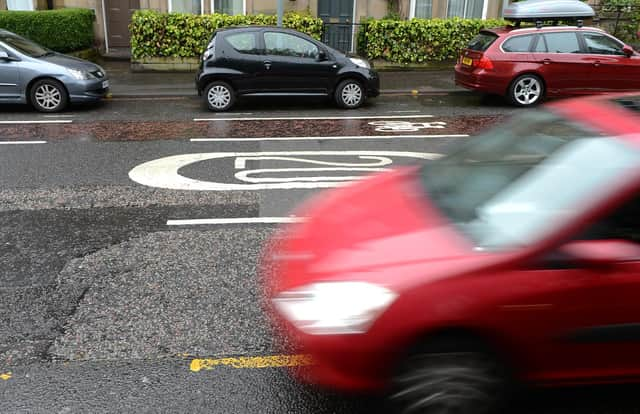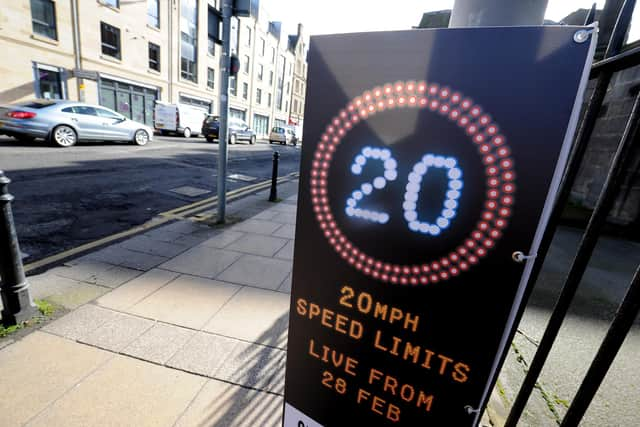Crashes cut by one third after 20mph limit introduced in Edinburgh


It showed the average monthly number of road traffic collisions (RTCs) went down from just over 95 in 2016 when the 20mph limits were introduced to 64 in 2018.
However, the rate had also more than halved over the two decades prior to that, from 165 in 1997.
Advertisement
Hide AdAdvertisement
Hide AdThe researchers found the trend changed around the time of the 20mph limit introduction from a “slow-decreasing” state to a “fast- decreasing” state.


The university said the research, published in the journal Environment and Planning B, “provided compelling evidence that a structural change occurred leading to a further decline in the rates of collisions, which can be associated with introduction of the 20mph speed limit”.
However, Dr Valentin Popov, of the school of mathematics and statistics, who led the study, said the decline might have been due to a “cultural shift” rather than directly attributable only to the introduction of the new lower limit.
Dr Popov, who worked with researchers from the universities of Edinburgh, East Anglia and Cambridge, said: “We have reasons to believe the 20mph policy was effective, at least in the short-term.
"This shows that 20mph limits are worth considering in cities where there is a concerted will to reduce RTCs and make roads safer for users.”
The research showed collisions peaked in the autumn and August, attributed to the Edinburgh Festival, and were lowest at the start of the year.
The IAM RoadSmart motoring group showed areas without 20mph zones should have been included in the study to see if other factors may be involved with the reduction in collisions.
Neil Greig, its Scotland-based policy and research director, said “It would have been useful to have had some comparison with non-20mph areas as there is an overall downward trend in collisions due to new car technology and road layouts.
Advertisement
Hide AdAdvertisement
Hide Ad"Having said that, a reduction in minor bumps is some good news for drivers as they navigate 20mph zones with only signpost changes and no obvious extra engineering measures.
"Usually 20mph are marketed as safety and environment schemes but have little overall impact on pedestrian and cyclists injuries, so this could be an added benefit not considered before.”
City of Edinburgh Council transport convener Lesley Macinnes said: “The findings are extremely welcome – any reduction in the volume and severity of road traffic accidents in Edinburgh is a real positive.
"In 2018 we became Scotland’s first 20mph city when we completed the roll-out of new speed limits across the capital, with the very intention of creating safer streets, which in turn encourage people to walk, cycle and wheel and to spend more time in their local areas.
“We know from our own findings that this bold approach has resulted in a statistically significant drop in speeds, and broader research has shown that for every 1mph reduction in speed there’s a 6 per cent fall in the number of accidents.
"We can’t ignore this kind of evidence, which is why we’re continuing to expand our 20mph network – just this week we approved introducing this speed limit in even more streets in the city.”
A message from the Editor:
Thank you for reading this article. We're more reliant on your support than ever as the shift in consumer habits brought about by coronavirus impacts our advertisers.
If you haven't already, please consider supporting our trusted, fact-checked journalism by taking out a digital subscription.
Comments
Want to join the conversation? Please or to comment on this article.